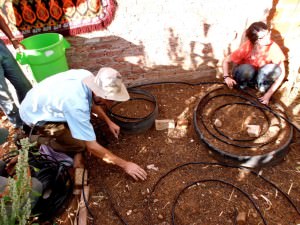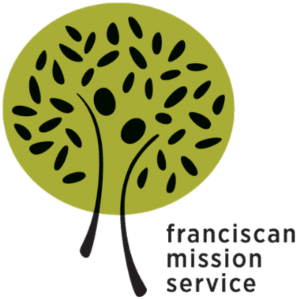Mission Monday: Community Gardens in Bolivia
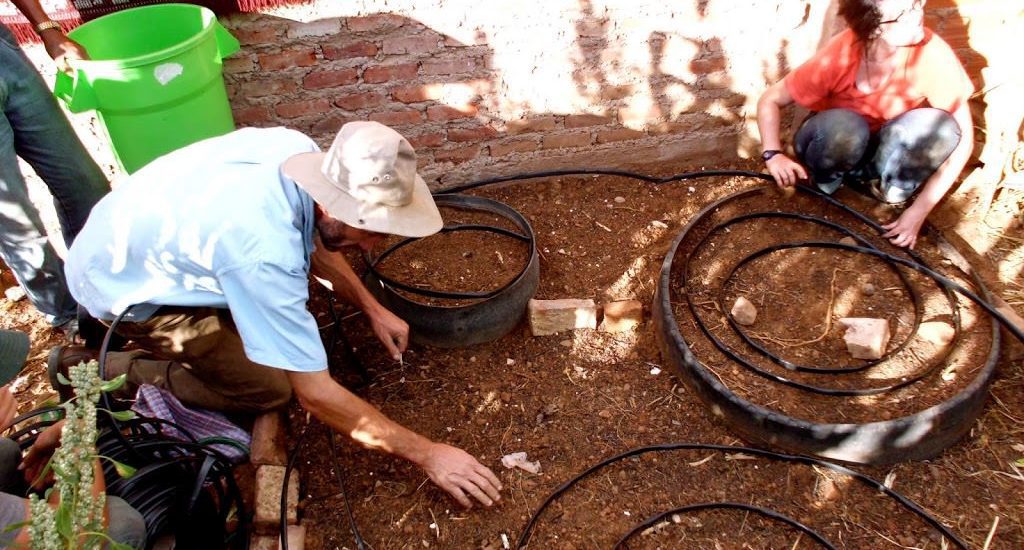
As a Franciscan organization rooted in the commitment of caring for creation, Earth Day is a very special time for us. We are especially joyous today because our newest lay missioners in Cochabamba, Bolivia have been recently participating in some great ecological endeavors while exploring the ministries in which they’ll serve.
From community gardens to recycling education to advocacy work, our missioners have been involved in a variety of environmental efforts over the years, and we’re glad that the members of Lay Mission Class 28 can continue to tradition. Here’s an update on their current activities:
Jeff Sved has joined the ecological cell of the Franciscan parish’s Justicia y Paz division.
Every Saturday morning, he joins about four parishioners bright and early to take care of the gardens around the parish for a few hours before breaking for breakfast around 8:30 and heading to an orphanage in a nearby town to help with their expansive garden. The groups assists the three sisters and 120+ girls that live there with harvesting, planting, and weeding the vegetable garden or cutting the grass in the yard. Their garden supplements the donations they get for meals and usually makes up a large portion of their daily food.
“During breaks we play with the girls, who one day tied together a pair of blankets for a jump rope and proceeded to laugh when I failed to use the tiny jump rope. A few of them ran off and brought back a couple more to make it larger and then we practiced counting in Spanish, English and Quechua as I jumped.” – Jeff Sved
The ecological cell also teaches about recycling at some of the local middle and high schools. Each presentation includes a discussion and demonstration of recycling and composting. Bolivian garbage collection is actually split into four categories and collected in color-coded containers: black for trash, white for recycling, green for biodegradables, and brown for electronics.
Annemarie Barrett has been invited to join the team managing the garden at the Santa Vera Cruz parish in Cochabamba’s southern zone.
The goal is to create community among the families in the surrounding parish community using the garden as a medium. The end goal is not to connect these families with a market where they can support themselves financially with the food they grow. “Instead,” Annemarie said, “We are working to connect the resources that exist within their community to share the food and decrease dependence on the food market.”
There are larger goals as well of making this garden a reflective space where both the families from the parish and the volunteers (most from foreign countries) can come together and connect with the Earth, and connect with the larger Andean Cosmo vision.
Most of these families have migrated from the campo or “countryside” and therefore speak both Spanish and Quechua. They each have gardens in their own homes. So this project is creating spaces to share skills between our team and between these families, to facilitate spaces where the families can share amongst each other and their own gardens while also gathering in our parish garden.
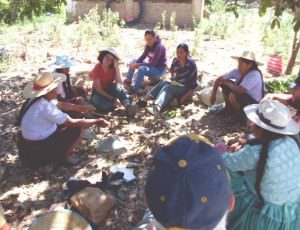 |
| Annemarie (third from left) listening to gardening participants |
Thursday afternoons the team – Bolivian woman who works in the parish, a Chilean grad student, a Marknoll Lay Missioner, and Annemarie – drives up the mountain to visit the community where these women and their families live. On Saturday mornings, the women typically come down the mountain to join the team in the parish garden.
Annemarie’s educational outreach with the garden has included taking an American pamphlet on using recycled tired in the garden and making it more accessible for Bolivians by translating it to Spanish and redrawing the illustrations to reflect the local population.
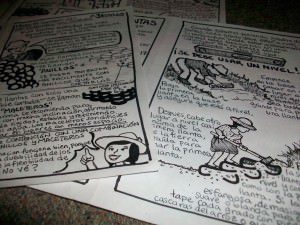 |
| Annemarie’s reworked pamphlet on how to use tired in the garden |
We are excited our missioners are able to spend time engaging with the local community while caring for the Earth. This week, think about how you can do the same.
Tagged in:

